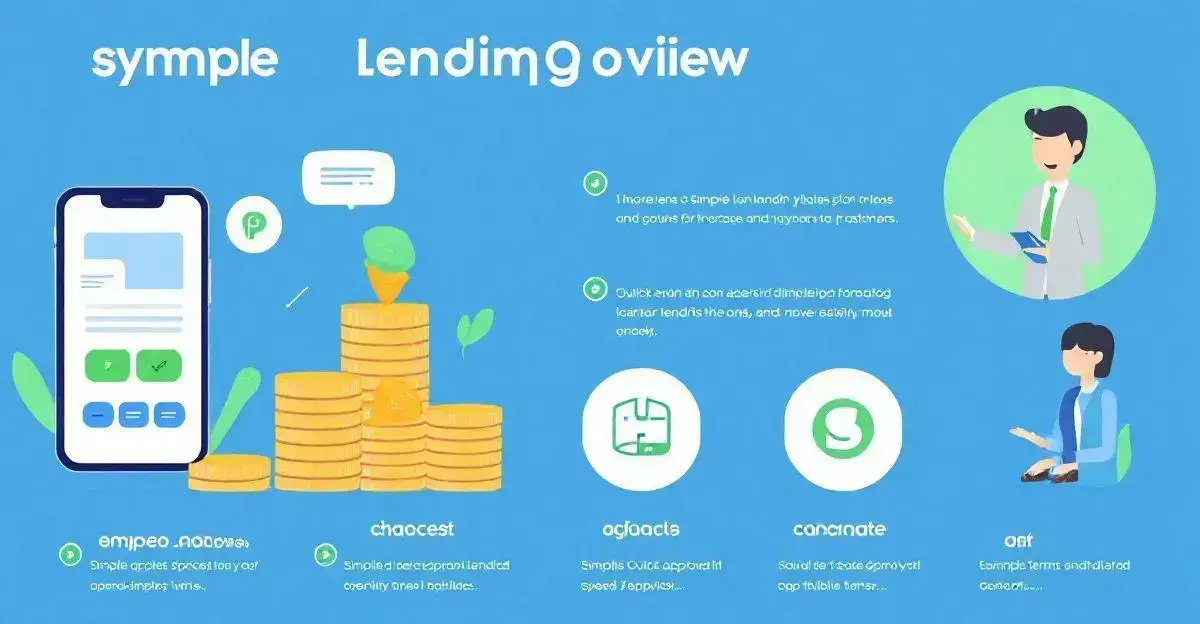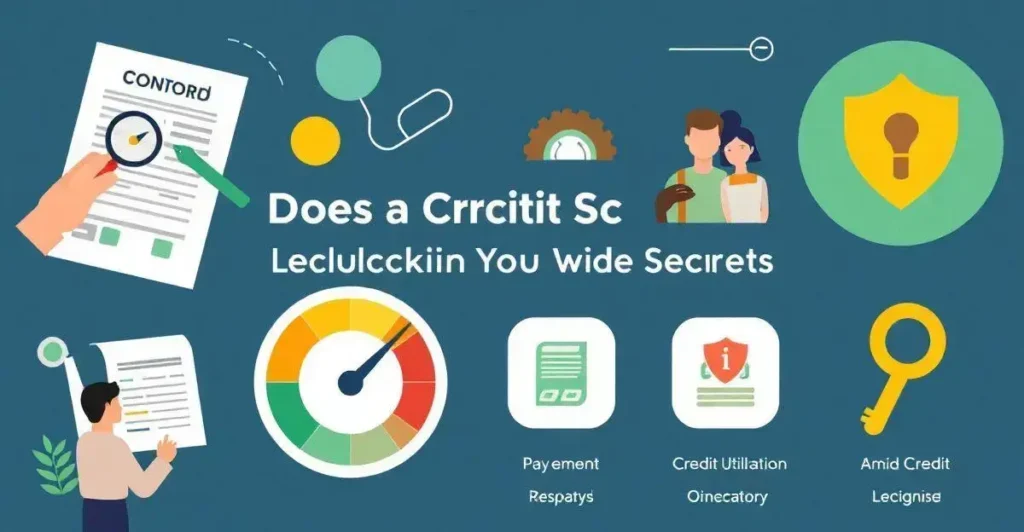Understanding Symple Lending credit score requirements is key to securing a loan with favorable terms. Your credit score, ranging from 300 to 850, influences the interest rates and conditions you’ll receive. A higher score means better chances for approval and lower rates.
To improve your score, focus on making timely payments and keeping your credit utilization below 30%. These habits show lenders that you manage debt responsibly, making you a more attractive borrower.
Want to know how to boost your credit and improve your loan options? Keep reading for practical tips to get your score in shape.
Understanding Credit Scores for Lending
Understanding credit scores is crucial when applying for loans. A credit score, often ranging between 300 and 850, reflects your creditworthiness. The higher the score, the more likely you are to receive favorable lending terms. When applying for loans, meeting the Symple Lending credit score requirements can help you secure the best rates and conditions.
Factors influencing your score include payment history, credit utilization, length of credit history, and types of credit used. Each of these elements plays a significant role in determining your overall score.
For example, consistent and timely payments positively impact your score, while late payments can significantly lower it. Keeping your credit utilization below 30% is another key strategy to maintain a healthy score. Additionally, longer credit histories generally favor users, as they show lenders that you can manage debt responsibly.
If you’re just starting your credit journey, consider obtaining a secured credit card or becoming an authorized user on someone else’s card. This can help you build a positive credit history over time.
Symple Lending Overview

Symple Lending offers straightforward loan options tailored for various needs. Whether you’re looking for personal, business, or home loans, Symple Lending aims to simplify the process. Their approach focuses on transparency and customer satisfaction. They provide clear information regarding terms, conditions, and eligibility.
The application process is designed to be fast and efficient. Many borrowers appreciate the streamlined application system, which allows them to complete it online without unnecessary paperwork.
Furthermore, Symple Lending evaluates each application individually, ensuring that all circumstances are considered, including whether applicants meet the Symple Lending credit score requirements.
One of the key features of Symple Lending is its competitive interest rates. By maintaining low overhead costs and using technological advancements, they can offer rates that appeal to a wide range of potential borrowers. They also emphasize financial education, providing resources to help borrowers understand their options better.
In addition, Symple Lending is committed to helping borrowers improve their credit scores. They often work with clients to develop plans that not only assist in securing loans but also enhance their long-term financial stability.
Requirements for Good Credit Score
To qualify for a good credit score, certain requirements need to be met. A credit score generally ranges from 300 to 850, and a score of 700 or above is considered good. Several factors contribute to achieving this score, including meeting the Symple Lending credit score requirements.
First, payment history plays a crucial role. Making timely payments on your debts, such as credit cards, loans, and mortgages, helps build your score. Missing payments can have a significant negative impact.
Second, credit utilization is important. This refers to the amount of credit you are using compared to your total available credit. Keeping this ratio below 30% is recommended to maintain a healthy credit score.
Another factor is the length of your credit history. A longer credit history demonstrates reliability to lenders. Be mindful of keeping older accounts open, as it can positively affect your score.
Furthermore, having a variety of credit types can be beneficial. This includes a mix of credit cards, installment loans, and retail accounts. A diversified credit portfolio shows responsible credit management.
Finally, limit hard inquiries on your credit report. Each time you apply for new credit, it can slightly reduce your score. Try to space out applications over time.
Impact of Poor Credit on Lending

Additionally, if you do get approved for a loan, the terms may not be favorable. Expect higher interest rates and fees, which can lead to increased monthly payments. This is because lenders view low credit scores as a higher risk and compensate by charging more.
Moreover, poor credit can affect the types of loans available to you. For instance, you may not qualify for secured loans with lower rates or favorable repayment terms. Instead, you might only qualify for subprime loans that come with harsh conditions.
In some cases, individuals with poor credit may need to seek alternative lenders or consider peer-to-peer lending.
Lastly, having poor credit can harm your ability to rent homes, open utility accounts, or even get certain jobs where financial responsibility is crucial. Therefore, it is important to understand the consequences of poor credit and take steps to improve your score.
Preparing Your Credit for Symple Lending
Preparing your credit for Symple Lending is a crucial step for favorable loan terms. Start by reviewing your credit report for errors. Disputing inaccuracies can potentially boost your score. Understanding your current credit score helps you identify what needs improvement.
Next, focus on paying down existing debt, especially on credit cards. This not only lowers your credit utilization ratio but also demonstrates responsible credit management to lenders. Aim to keep your credit utilization below 30%, which is important for meeting Symple Lending credit score requirements.
Additionally, establish a history of on-time payments. Set up automatic payments or reminders to ensure bills are paid promptly. This practice can have a significant positive impact on your credit score.
Consider avoiding any new credit inquiries just before applying for a loan with Symple Lending. Each hard inquiry can slightly decrease your score, which may influence your loan terms.
It’s also advisable to keep older credit accounts open. The length of your credit history is an important factor in your score, so maintaining these accounts can benefit you in the long run.
Lastly, educate yourself on financial management. Understanding credit scores, loans, and responsible borrowing can prepare you better for the lending process and improve your chances of meeting Symple Lending credit score requirements.
Common Myths about Credit Scores
There are many common myths about credit scores that can confuse borrowers. One common myth is that checking your own credit score will lower it. This is not true. When you check your own score, it is considered a soft inquiry and does not affect your credit.
Another myth is that closing old credit accounts improves your score. In reality, older accounts can enhance your credit history length, which is beneficial for your score. Keeping these accounts open, even if you don’t use them, is often a better choice.
Many people also believe that you need to carry a balance on credit cards to build credit. This is false. Paying your balances in full every month and on time will actually help build a stronger score without accruing interest.
Additionally, some think that paying off collections will automatically raise their score. While it can help, it doesn’t always guarantee an increase immediately. The collection may still impact your score until it drops off your report after a certain period.
Lastly, a common misconception is that income affects your credit score. In fact, credit scores are based solely on your credit behavior and history, not your income level. Understanding Symple Lending credit score requirements can also help you avoid falling for these myths and better prepare for your application.
Steps to Improve Your Credit Score
Improving your credit score involves several key steps. First, pay your bills on time. Timely payments are one of the most critical factors affecting your score. Set up automatic payments or reminders to avoid missing deadlines.
Second, reduce your credit card balances. Aim to keep your credit utilization under 30%. This means using less than 30% of your available credit to help boost your score.
Next, review your credit report regularly for errors. If you find inaccuracies, dispute them promptly. Correcting mistakes can positively impact your score.
Additionally, avoid opening too many new accounts at once. Each new application can result in a hard inquiry, which may lower your score temporarily. Space out your applications over time.
Keeping older credit accounts open also matters. The length of your credit history contributes to your score, so consider maintaining those accounts, even if you don’t use them frequently.
Finally, educate yourself about how credit scores are calculated. Understanding the factors that influence your score can help you make informed financial decisions. Understanding Symple Lending credit score requirements is another way to ensure you meet the necessary standards for favorable loan terms.
Alternative Lending Options

If traditional lending isn’t an option, consider alternative lending options. These can offer flexible solutions for borrowers who may face challenges with credit scores. One popular choice is peer-to-peer lending, where individuals lend money to one another through online platforms. This method often has lower interest rates than traditional banks.
Another alternative is using credit unions. Unlike big banks, credit unions are nonprofit organizations that focus on serving their members. They often provide loans with better terms and lower fees.
Online lenders are also a growing option. These companies typically offer faster approvals and simpler application processes. Some may specialize in loans for individuals with bad credit, providing an opportunity to secure funds when needed.
Home equity loans and lines of credit can be viable options for homeowners. Utilizing your home’s equity can provide a source of cash at competitive rates, making it a useful alternative for financing.
Explore microloans. These small loans, often offered by nonprofit organizations, are designed for startups and small businesses. They provide the necessary capital without stringent credit requirements.
Additionally, if you’re considering a loan with Symple Lending credit score requirements, it’s important to understand how your credit score might impact your eligibility for various alternative lending options.
Frequently Asked Questions about Credit Scores and Lending
What is a credit score?
A credit score is a numerical representation of your creditworthiness, usually ranging from 300 to 850.
How can I improve my credit score?
You can improve your score by paying bills on time, reducing debt, and reviewing your credit report for errors.
What affects my credit score?
Factors that affect your score include payment history, credit utilization, length of credit history, and types of credit.
What is credit utilization?
Credit utilization is the ratio of your credit card balances to your credit limits. Keeping it under 30% is recommended.
Can I still get a loan with bad credit?
Yes, but you may have to consider alternative lending options and you might face higher interest rates.
What are alternative lending options?
Alternative lending options include peer-to-peer lending, credit unions, online lenders, and microloans.

